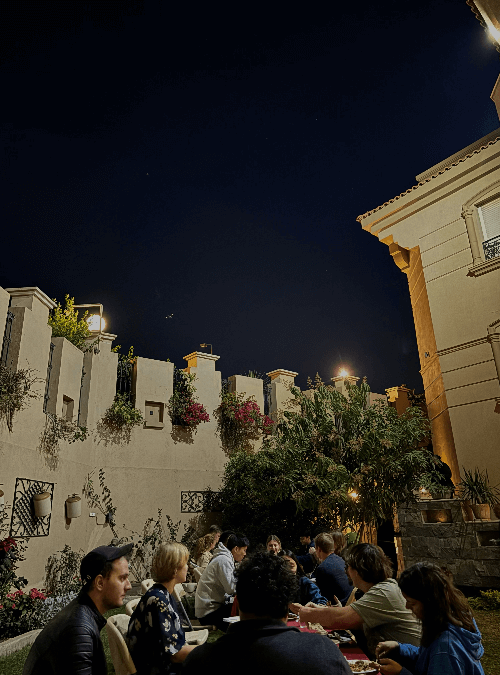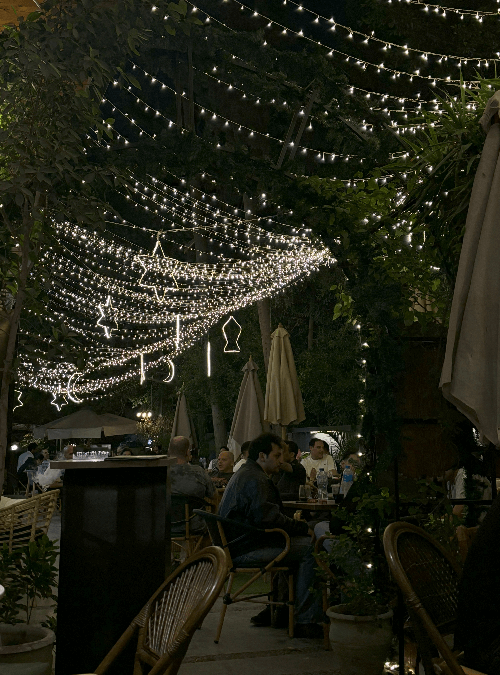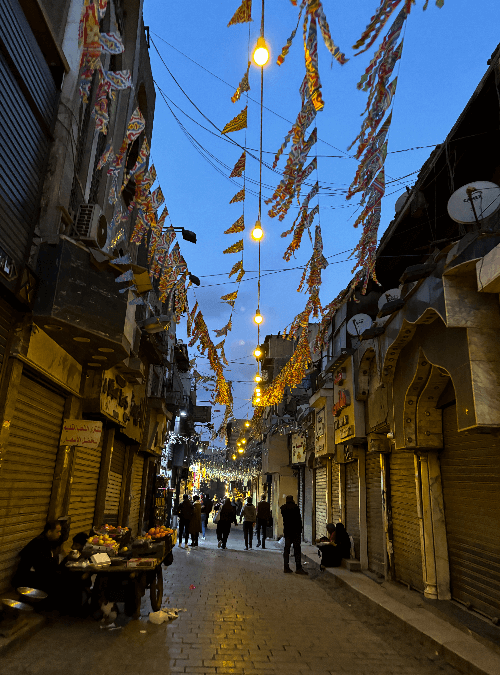


I am lucky enough to have studied abroad in Egypt during the Muslim holy month of Ramadan. Although I have grown up around a Muslim family that celebrates Ramadan, I have never seen an entire country come together for the holy month like I have seen in Egypt.
From the very start of the month, everyone begins decorating the streets of Egypt with different strings and Islamic symbols that brighten up every alleyway. It is more subtle in some streets than in others, but you can always see the effort that people are putting into the festivities and decorations to truly set it apart from the rest of the year. You can also see these decorations in the majority of restaurants across the country.
Another thing that changes drastically during Ramadan in Egypt is all of the school and work schedules. To accommodate all of the people that are fasting all day and need to break their fast and be with their families at specific hours, the classes that occur close to or during Iftar hours (when the sun sets and everyone fasting can eat) are actually shifted either earlier or later in the day. American University in Cairo sends out an email to all the students and staff listing what the class schedules will be for the whole month, and then professors work from there to further accommodate the class if necessary. A similar thing occurs for workers in Egypt, many restaurants shifted their hours and were mainly open after Iftar to accommodate all of the workers who were observing Ramadan. Living in America, this is something that was entirely new to me and I have never seen accommodation to such a large scale. Although America is not a Muslim majority country, I do think it would be great to see some aspects of these accommodations be implemented for the students and workers in the U.S. that are observing Ramadan, so that they are able to practice safely and celebrate with their families.
Iftar is supposed to be held amongst a group of people, typically friends and family, but it is also part of the tradition to host dinner and invite large groups of people to join your family. Throughout the month, many students were hosting Iftars within our campus common spaces, where a few people would cook or everyone would be responsible for bringing one dish and eating in community. One of my professors actually invited my entire class, and another one of her classes, to join her and her family for Iftar and we all ate together in her backyard. The food for Iftar is typically traditional Middle Eastern dishes and desserts! Additionally, on many of the streets of Egypt, locals would set up tables and provide full meals so that travelers, workers, and homeless individuals could have a meal together. Getting to witness and be a part of all of these gatherings was the most beautiful experience of community and joy that I have been a part of. The care extended to all members of the community was powerful to witness, and it definitely contributes to the larger sense of community and trust that people have for one another across all of Egypt.
